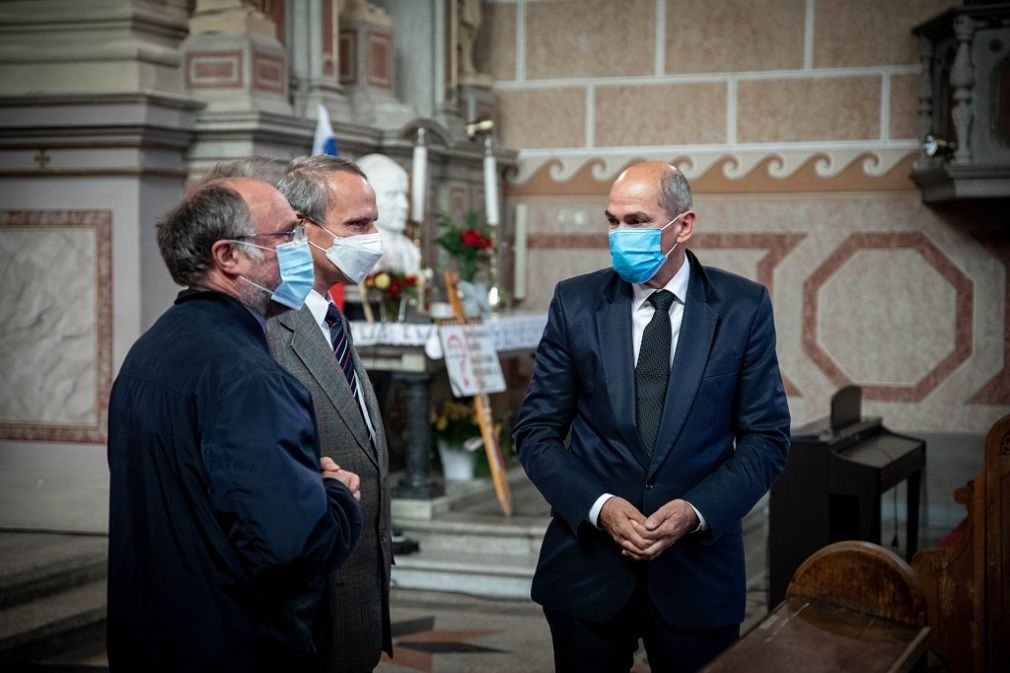The administrator of the Celje diocese, Rok Metličar, offered a mass for the victims of war and post-war violence in Teharje, which was held today in the Tehar church. As he said, this year is in many ways different than the previous ones, but if we look back, we realise that after 75 years, the memories of the Tehar victims are still very much alive in the hearts of many.
The Mass was, among others, also attended by Prime Minister Janez Janša. The traditional mourning ceremony in the Memorial Park in Teharje was cancelled this year due to the epidemiological situation in the country.
Metličar recalled that three decades have passed since they began to administer communion in places where a man tried to disguise and conceal the evil done to his brother.
“However, the wounds that have never healed and were caused by wars are still inflaming among us. Wars are always started with the intention of subjugating or destroying human lives by an individual or some part of the society,” he warned.
Metličar is convinced that the church is still alive and strong among the Slovene people today, also because of the “heroic suffering of the masses who went through the camps, prisons, interrogations, forced labour and death”.
After the mass, academic painter Marcos Jerman addressed the gathering, saying that 75 years ago, at a time when he was in horror discovering the atrocities of Auschwitz and other Nazi camps, the Tehar concentration camp began its criminal business.
He recalled that the abandoned German barracks were used by the new revolutionary government as the last gathering place for those accused of treason and collaboration and consequently sentenced to death. “It is up to us to not forget all the people without names, who here and in many places in Slovenia died too young with prayer on their lips. Today, archaeologists are discovering what ideologues have been hiding for decades, but we, living abroad, knew. We can’t change history. We have to get to know history, “Jerman added.
After the war, captured home-guards, soldiers and civilians were temporarily stationed in the area of the former German training centre in Teharje. The Allies stopped them in Carinthia together with fugitives and refugees from Croatia and Serbia and handed them over to the new partisan authorities.
Many were then killed without a trial, some near the camp in Bukovžlak or in the immediate vicinity of Celje, and even more in Huda Jama near Laško and in the mine shafts of Hrastnik or Pečovnik.
A memorial park was opened on the site of the former camp in 2004.
